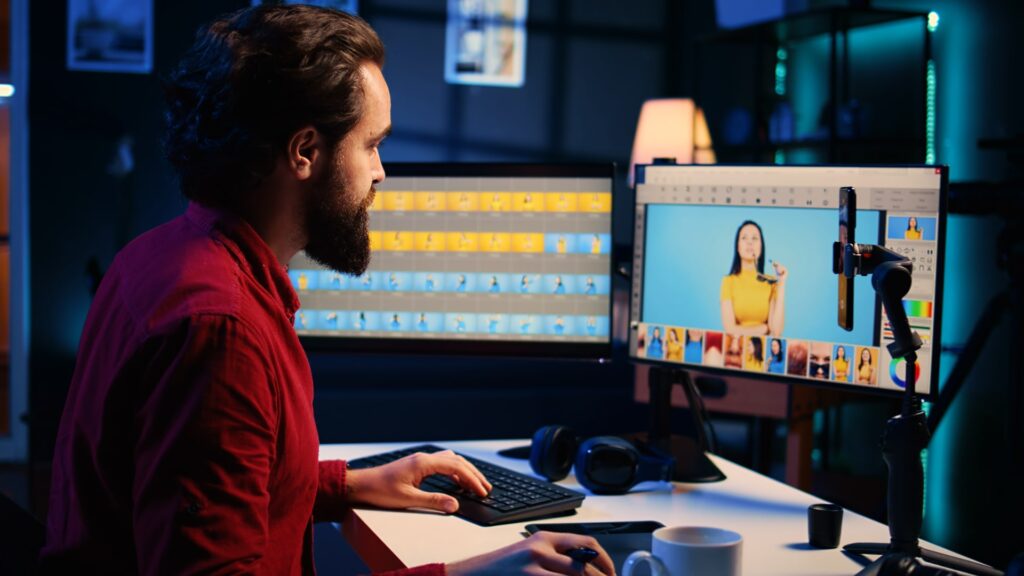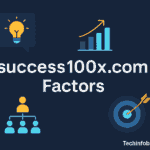In today’s fast-paced digital world, where human attention is fleeting and authenticity reigns supreme, influencer marketing has evolved into a highly dynamic ecosystem. Influencers—once limited to social media selfies and static posts—are now integrating immersive content powered by artificial intelligence (AI). As a result, brands and creators are leveraging AI technologies to build deeper virtual connections, boost content output, and enhance online presence at scale. This fusion of AI and influencer marketing is opening up a new era of storytelling—one where algorithms amplify influence and innovation drives visibility.
The Rise of AI in Digital Influence
AI is no longer just a tool for analytics and automation; it’s now a creative partner. From personalized content recommendations to real-time engagement tools, AI has become deeply embedded in how influencers strategize and scale. One of the most transformative aspects of AI is its ability to simulate human traits—voice, gestures, expressions—which plays a crucial role in forging emotional connections between influencers and their audiences.
Brands collaborating with influencers are now experimenting with AI-driven avatars, generative visuals, and virtual clones to maintain a consistent and cost-effective digital identity. These innovations are particularly beneficial for micro and nano influencers who lack the resources of high-budget production houses but want to keep up with fast content cycles and high audience expectations.
How AI Elevates Content Creation for Influencers
The content creation process, which was traditionally time-consuming and expensive, is being radically simplified through AI. Influencers can now auto-generate scripts, subtitles, and entire video formats using intuitive platforms. AI tools can mimic speech patterns, adapt visuals to platform-specific dimensions, and even perform real-time translations—helping creators go global without losing authenticity.
Additionally, audience sentiment analysis and AI-driven trend forecasting are empowering influencers to tailor content that resonates on a personal level. Instead of throwing content into the void and hoping for engagement, influencers can now predict what works based on rich data sets and predictive algorithms.
Virtual Presence: A Strategic Asset
A strong virtual presence is no longer optional—it’s a strategic necessity. AI helps influencers maintain a 24/7 presence without physically being online all the time. Virtual influencers and AI-generated content can fill in gaps during off hours, while scheduling algorithms ensure consistent engagement. The result? Better brand recall, greater reach, and a tighter connection between influencer and audience.
Even more compelling is the use of virtual avatars and AI-generated personas that allow influencers to maintain privacy, protect their mental health, and simultaneously grow their brand. This evolution is especially important in an era where parasocial relationships can be overwhelming and real-world presence can be exploited.
Personalization at Scale
Influencers often face the challenge of scaling their personal brand without losing the “personal” part. AI solves this paradox by enabling hyper-personalized interactions. Chatbots, customized video messages, and dynamic email campaigns can now be driven by machine learning models trained on individual audience behaviors.
By automating repetitive tasks—like responding to FAQs or generating captions—AI frees influencers to focus on high-value creativity. At the same time, AI learns from audience interactions and continuously adapts, ensuring that personalization deepens over time.
Embracing the Human Touch with AI
Despite the high-tech nature of these tools, successful influencers know that authenticity is still the currency of trust. AI is most effective when used as a supplement—not a substitute—for genuine human connection. For instance, an ai talking person can be a powerful asset when an influencer needs to scale video production without being on camera for every clip. This kind of technology allows influencers to create personalized, consistent content while still reflecting their unique personality and tone.
The balance lies in using AI to enhance—not replace—the nuances that make human communication powerful. Audiences are quick to detect over-automation, so creators must use these tools thoughtfully to preserve trust.
The Role of AI in Influencer-Brand Collaborations
AI is revolutionizing how brands work with influencers. Machine learning models can analyze millions of profiles to identify ideal influencer-brand matches based on engagement rates, audience demographics, content quality, and more. This means campaigns are not only more targeted but also more likely to succeed.
Furthermore, AI helps monitor real-time campaign performance, giving brands immediate insights into what’s working and what needs adjusting. Influencers, in turn, gain access to advanced analytics that help them refine their content strategies and maximize ROI.
Making AI Tools Accessible to Creators
The good news is that many of these innovations are not reserved for large enterprises. Affordable, user-friendly platforms are emerging to bring AI capabilities to everyday creators. For example, invideo AI offers an intuitive ai video app that lets influencers produce high-quality videos using simple drag-and-drop tools, templates, and AI-generated scripts. These kinds of platforms empower creators to focus on their storytelling while the backend handles the heavy lifting.
With such tools, influencers no longer need a team of editors, designers, or voice actors to maintain professional-grade output. AI apps reduce production time, lower costs, and expand creative possibilities.
Overcoming the Challenges of AI Adoption
While the potential is immense, integrating AI into influencer workflows isn’t without its hurdles. One key challenge is the learning curve—especially for creators who aren’t tech-savvy. To bridge this gap, platforms are beginning to include onboarding tutorials, community support, and automated guidance.
Another concern is the ethical use of AI—especially when creating deepfake-like content or synthetic voices. Influencers must be transparent with their audiences about when AI is used, and they must avoid misleading or manipulative content practices.
As regulation around digital identity and AI-generated content becomes clearer, both influencers and brands must stay informed to navigate the space responsibly.
Final Thoughts
AI is undeniably transforming influencer marketing and virtual presence in ways that were once unimaginable. From scaling personal brands to streamlining content production and deepening audience engagement, the integration of AI marks a shift toward a more efficient, intelligent, and immersive future. As long as creators use these tools to amplify their authentic voices rather than replace them, the influence economy will continue to thrive—only now, with algorithms as creative collaborators.



